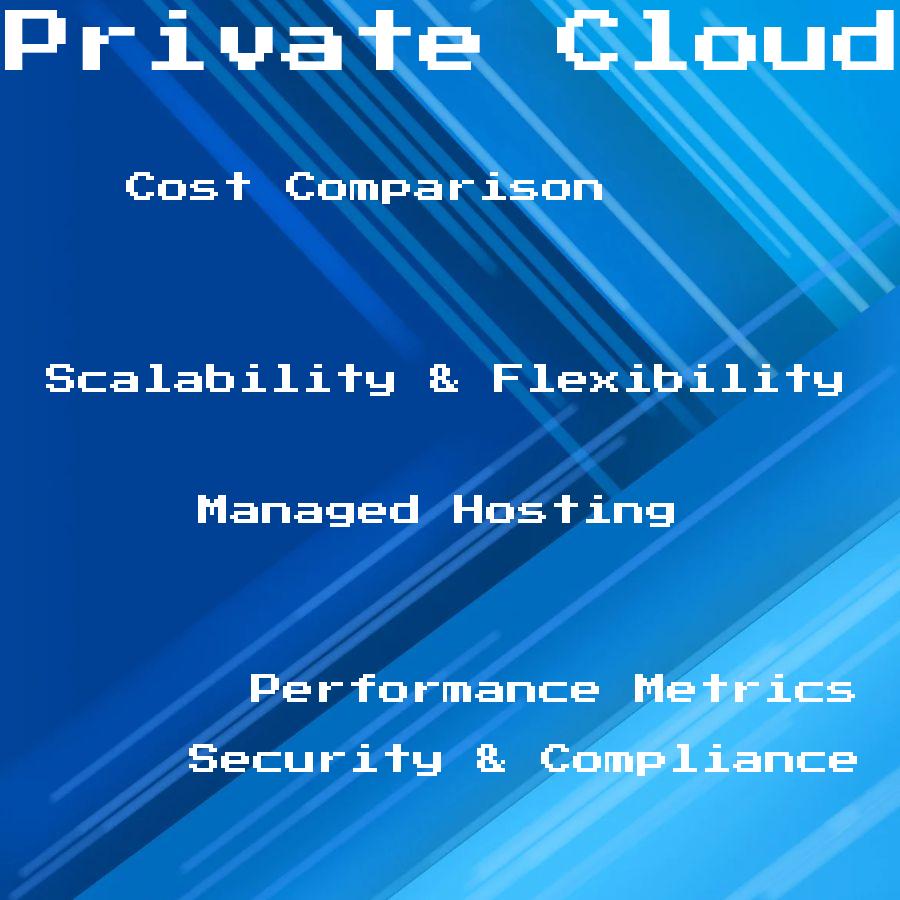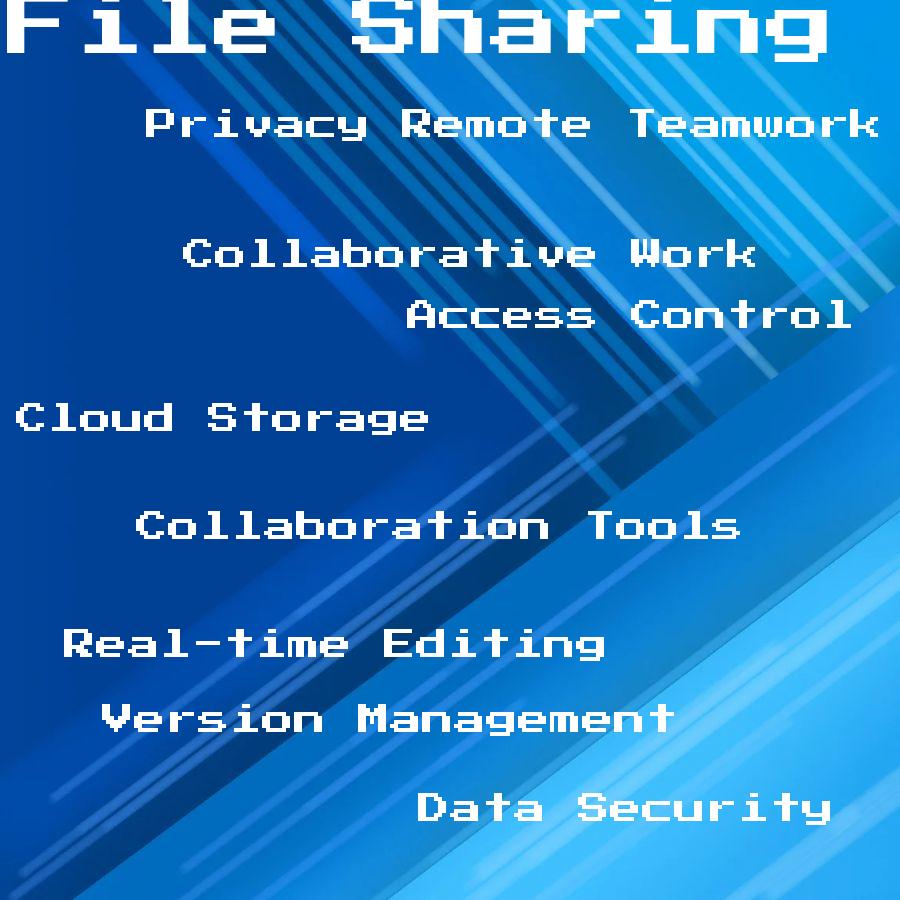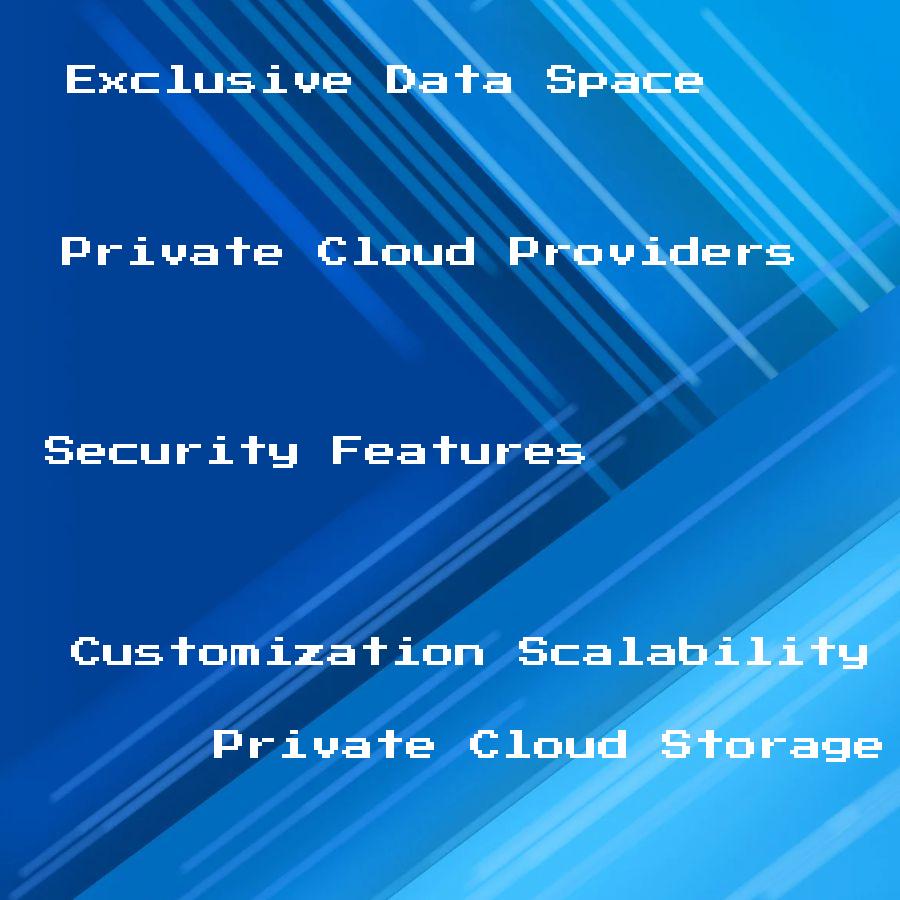Explore the key differences between managed hosting and private cloud as we delve into their unique features, benefits, and ideal use cases in this comprehensive comparison.
Are you considering hosting your website or application on the cloud, but not sure which option to choose? With so many cloud computing options available, it can be overwhelming to decide. In this post, we’ll delve into the differences between managed hosting and private cloud.
Both options have their own unique advantages and disadvantages, and understanding them will help you make an informed decision that best suits your business needs. So sit back, relax, and let’s explore the world of cloud computing together!
Key takeaways:
- Managed hosting handles IT infrastructure management for businesses.
- Private cloud offers greater control, customization, and security.
- Managed hosting can be less expensive, private cloud requires upfront investment.
- Private cloud provides better scalability and resource flexibility.
- Managed hosting offers convenience, private cloud offers control.
Managed Hosting Overview

Managed hosting is a popular option for businesses that want to outsource their IT infrastructure management. With managed hosting, the service provider takes care of all hardware and software maintenance, security updates, and backups.
This allows businesses to focus on their core competencies without worrying about managing servers or other technical aspects of running a website or application.
Managed hosting providers typically offer different levels of support depending on the customer’s needs. Some providers offer basic support such as server monitoring and patching while others provide more comprehensive services like 24/7 technical assistance.
One advantage of managed hosting is that it can be less expensive than building an in-house IT team with dedicated resources for maintaining servers and applications. Since the provider manages everything from hardware upgrades to software patches, there are fewer unexpected costs associated with maintaining your own infrastructure.
However, one potential downside is that you may have less control over your environment compared to private cloud solutions where you have complete control over your virtualized environment. If you need highly customized configurations or specialized applications not supported by the provider’s platform then managed hosting may not be suitable for your business needs.
Private Cloud Basics
Unlike public clouds, private clouds are not shared with other users or organizations. Private clouds can be hosted on-premises or by third-party providers and offer greater control over the infrastructure, security, and compliance requirements.
Private cloud offers several benefits such as increased security due to its isolated nature and customizable features tailored specifically for an organization’s needs. It also allows businesses to have more control over their data storage while still enjoying the flexibility of the cloud environment.
However, setting up a private cloud requires significant investment in terms of hardware infrastructure and maintenance costs which may not be feasible for small businesses with limited budgets. Managing a private cloud requires specialized skills which may require additional training or hiring new staff.
Understanding the basics of private clouds is essential when deciding whether it’s right for your business needs.
Cost Comparison
Managed hosting typically involves paying a fixed monthly fee for the provider’s services, which can include hardware maintenance, software updates, security patches, and technical support. On the other hand, private cloud requires more upfront investment in infrastructure and ongoing management costs.
While managed hosting may seem like an affordable option at first glance due to its predictable pricing model with no hidden fees or unexpected expenses; it can become expensive over time as your business grows. Private clouds offer greater flexibility in terms of resource allocation and scalability options that allow you to pay only for what you use.
It’s important to note that cost should not be the sole determining factor when making this decision since both options have their own unique benefits beyond just price points.
Scalability & Flexibility
Managed hosting typically offers limited scalability, as resources are shared among multiple users on a single server. This means that if your website or application experiences a sudden surge in traffic, it may not be able to handle the increased load.
On the other hand, private cloud solutions offer greater scalability by allowing you to easily add or remove resources as needed. With private cloud computing, you have access to dedicated servers that can be scaled up or down depending on your business needs.
In addition to scalability, flexibility is another key consideration when choosing between these two options. Managed hosting often comes with pre-configured software packages and limited customization options which can limit your ability for customization based on specific requirements of an application.
Private clouds provide more control over hardware configurations and software installations so businesses can tailor their infrastructure according their unique needs without any restrictions from third-party providers.
Security & Compliance
Managed hosting providers typically offer a range of security measures, including firewalls, intrusion detection systems, and regular backups. However, the level of security may vary depending on the provider you choose.
On the other hand, private clouds provide greater control over your data’s security since you have complete ownership over your infrastructure. You can customize your security protocols to meet specific regulatory requirements or industry standards.
When it comes to compliance regulations such as HIPAA or PCI DSS (Payment Card Industry Data Security Standard), both options can be compliant if implemented correctly. However, with managed hosting solutions that share resources among multiple clients in a shared environment may require additional steps for achieving full compliance.
Performance Metrics
Managed hosting typically offers limited performance monitoring, while private cloud provides more comprehensive insights into your system’s performance. Private clouds allow you to monitor the usage of resources such as CPU, memory, and storage in real-time.
This level of visibility enables you to optimize resource allocation for better application performance.
In contrast, managed hosting providers may offer basic monitoring tools that only provide high-level information about server uptime or response time without much granularity on specific resource utilization.
When it comes down to it, if your business requires consistent high-performance levels with minimal downtime or latency issues then a private cloud solution is likely the best option for you. However, if your needs are less demanding and cost-effectiveness is a priority over advanced features like granular control over resources then managed hosting might be sufficient.
Customization Options
Private clouds are designed to meet specific business needs, and they can be tailored to fit those requirements precisely. With a private cloud, you have complete control over your infrastructure and can customize it according to your unique needs.
For instance, if you need more storage space or computing power for a particular project or application, you can easily scale up your resources with just a few clicks. You also have the flexibility to choose which hardware components and software applications are used in building your private cloud environment.
On the other hand, managed hosting services typically offer limited customization options since they provide pre-configured solutions that cater to general business needs. While this may work for some businesses that don’t require much flexibility in their IT infrastructure setup, others may find themselves constrained by these limitations.
If customizability is an essential factor for your business operations’ success on the cloud platform – then opting for a private cloud solution would be ideal as it provides greater control over resource allocation and configuration management than managed hosting services do.
Understanding the Differences: Private Hosted Cloud Vs. Private Cloud
Private Hosted Cloud and Private Cloud may sound similar, but they have distinct differences. Private Hosted Cloud refers to a cloud infrastructure that is managed by a third-party hosting provider.
In this model, the hosting provider takes care of all the hardware setup, maintenance, security updates, and monitoring on behalf of the client.
On the other hand, Private Cloud refers to an infrastructure that is owned and operated by an organization itself. It provides dedicated resources solely for their use while being hosted either on-premises or in a data center.
The key difference between these two lies in who manages and maintains the underlying infrastructure. With Private Hosted Clouds (also known as Managed Hosting), organizations can offload tasks like hardware management to experts while still having control over their applications and data.
In contrast, with a private cloud setup where organizations manage everything themselves (either on-premises or through colocation services), they have complete control over every aspect of their environment but also bear full responsibility for its management.
Pros and Cons: Managed Hosting Vs. Private Cloud
Understanding these pros and cons can help you make an informed decision about which option is best suited for your specific needs.
One of the key benefits of managed hosting is that it provides a fully managed infrastructure, allowing you to focus on your core business without worrying about server management or maintenance tasks. With managed hosting, the service provider takes care of hardware updates, security patches, backups, and other routine tasks.
This can save you time and resources while ensuring that your infrastructure remains secure and up-to-date.
On the other hand, private cloud offers greater control over your environment as compared to managed hosting. With a private cloud solution, you have dedicated resources solely for your organization’s use.
This allows for more customization options tailored specifically to meet your unique requirements.
However, this increased control comes with added responsibility in terms of managing the infrastructure yourself or hiring specialized staff to handle it effectively. Private clouds require expertise in areas such as virtualization technology deployment and ongoing maintenance.
Another aspect worth considering is scalability: Managed hosting typically offers flexible scaling options where additional resources can be provisioned quickly based on demand fluctuations without any upfront investment required from clients’ end; whereas scaling a private cloud may involve additional costs associated with procuring new hardware or expanding existing infrastructure capacity.
Demystifying the Debate: Managed Services or DIY With Cloud Service Provider Tools
Managed services involve outsourcing various aspects of your cloud infrastructure management to a third-party provider. This means that experts will handle tasks such as server maintenance, security updates, and data backups on your behalf.
By choosing managed services, you can focus more on your core business activities while leaving the technicalities to professionals.
On the other hand, taking the DIY route with cloud service provider tools gives you greater control over your infrastructure. You have direct access to all features and functionalities offered by the providers’ platforms.
This option requires more technical expertise and hands-on management from your team but allows for customization according to specific requirements.
Ultimately, deciding between managed services or going with DIY depends on factors like budget constraints, in-house expertise availability,and desired level of control over infrastructure management.
Case Study: Real-World Uses of Managed Hosting and Private Cloud
Let’s take a look at some case studies that highlight the practical uses of these two options.
Case Study 1: Company A opted for managed hosting services to handle their website and application infrastructure. By outsourcing the management of their servers, security updates, and backups to a trusted provider, they were able to focus on their core business activities while ensuring reliable performance and uptime.
Case Study 2: Company B chose a private cloud solution for its data storage needs. With sensitive customer information at stake, they wanted complete control over their data security measures.
By implementing a private cloud environment within their own premises or through dedicated resources from a service provider, they achieved enhanced privacy and compliance with industry regulations.
These case studies demonstrate how businesses can leverage either managed hosting or private cloud solutions based on specific requirements such as resource allocation control or offloading infrastructure management tasks.
Managed Hosting and Private Cloud: Making the Final Decision
Both options have their own advantages and disadvantages, so it’s important to evaluate them based on factors such as cost, scalability, control, security, and management capabilities.
Managed hosting offers convenience by outsourcing the day-to-day management tasks to a service provider. This can be beneficial for businesses that lack in-house expertise or resources to handle server maintenance.
With managed hosting services, you can rely on experts who will take care of hardware setup and configuration updates while ensuring optimal performance.
On the other hand, private cloud provides greater control over your infrastructure as it is dedicated solely to your organization. It allows for customization according to specific business needs while providing enhanced security measures compared to shared environments.
Private clouds also offer scalability options that enable you to easily expand resources when required.
To make an informed decision between these two options:
- Assess your budget: Consider both upfront costs (such as hardware investment) and ongoing expenses (including maintenance fees). Determine which option aligns better with your financial capabilities.
- Evaluate resource requirements: Analyze current workloads along with future growth projections. Determine if a scalable solution like private cloud would be more suitable or if managed hosting meets all necessary demands.
- Consider data sensitivity: If data privacy is crucial for compliance reasons or sensitive information protection is paramount in your industry sector; then opting for a private cloud might provide added peace of mind.
- Weigh internal expertise: Assess whether you have skilled IT staff available internally who can manage complex infrastructure setups effectively without external assistance.
- Seek expert advice: Consult with trusted IT professionals or service providers who specialize in both managed hosting solutions and private clouds before making any final decisions.
By carefully evaluating these factors against each other within the context of your unique business requirements; you’ll be able make an informed choice between managed hosting services versus private cloud.
FAQ
What is the difference between managed hosting and cloud?
The key distinction between managed hosting and cloud hosting lies in the infrastructure setup – with managed hosting utilizing a physical server, while cloud hosting employs a virtual machine.
What is the difference between hosting and private cloud?
Private cloud hosting provides exclusive access to resources and is managed by a third-party according to a client’s needs, while traditional hosting may not guarantee exclusive resources and is typically self-managed.
What is the difference between managed hosting and hosting?
The difference between managed hosting and hosting is that managed hosting provides additional resources and support, such as hardware and software setup, technical support, and system maintenance, while in regular hosting, these responsibilities fall on the client.
Is managed private cloud a private cloud?
Yes, a managed private cloud is a type of private cloud where the hardware, software, networking, and operations are handled by a third-party hosting partner.
How does the scalability of cloud hosting compare to traditional hosting?
Cloud hosting provides superior scalability compared to traditional hosting as it allows for instant resource adjustments based on demand.
What are the security implications of using a private cloud versus managed hosting?
Private cloud offers superior security due to dedicated resources and defined perimeters, while managed hosting, although protected by security protocols, is potentially more vulnerable due to shared resources and broader attack surfaces.
How does the cost efficiency of managed hosting compare to cloud computing?
Managed hosting may initially seem less costly, but cloud computing often proves more cost-efficient in the long run due to its scalability, pay-for-use pricing model, and reduced need for in-house IT infrastructure and maintenance.




